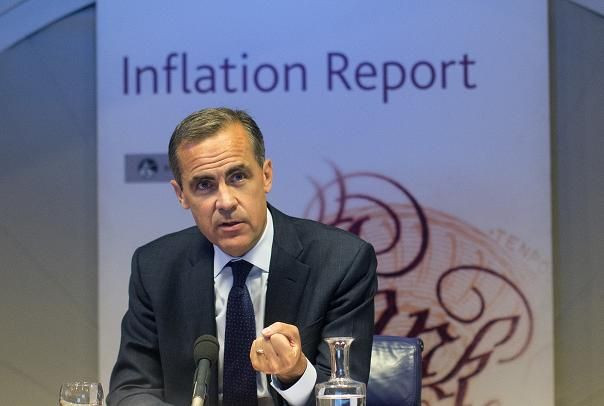Bank Of England Ready To Inject More Stimulus -- Mark Carney

Mark Carney used his first policy speech of his Bank of England governorship on Wednesday to push back against expectations in financial markets -- amid growing evidence the recovery is gaining traction -- that the BoE will raise the central bank’s benchmark interest rate sooner than they predicted earlier this month. (Read the full text here.)
"The upward move in market expectations of where Bank Rate will head in future could, at the margin, feed into the effective financial conditions facing the real economy. The MPC [Monetary Policy Committee] will be watching those conditions closely," Carney said.
"If they tighten, and the recovery seems to be falling short of the strong growth we need, we will consider carefully whether, and how best, to stimulate the recovery further," Carney added.
The BoE has embarked on a policy of forward guidance to deliver a clear message to the markets that it does not intend to raise interest rates at least until the LFS measure of the unemployment rate has fallen to a “threshold” of 7 percent, which it predicts will not have been reached by the third quarter of 2016.
Since Carney introduced the so-called forward guidance on Aug. 7, investors have begun raising bets on higher rates before 2016 and pushed up gilt yields.
Speaking to business leaders in Nottingham, Carney left the door open to a fresh round of quantitative easing if financial market threatens to stall growth.
"The Bank of England's task now is to secure the fledgling recovery, to allow it to develop into a period of sustained and robust growth," he said. “We aim to get there in part by reducing the uncertainty that has held back growth. And we are using our full suite of policy tools to help rebuild confidence so that we all can move forward in a sustainable manner.”
While the outlook for growth has improved considerably in recent months, growth prospects over the next three years are “solid not stellar,” Carney said. Unemployment is still too high, currently at 7.8 percent, and the economy is still about 3 percent smaller than it was before the recession hit in 2008.
© Copyright IBTimes 2024. All rights reserved.





















